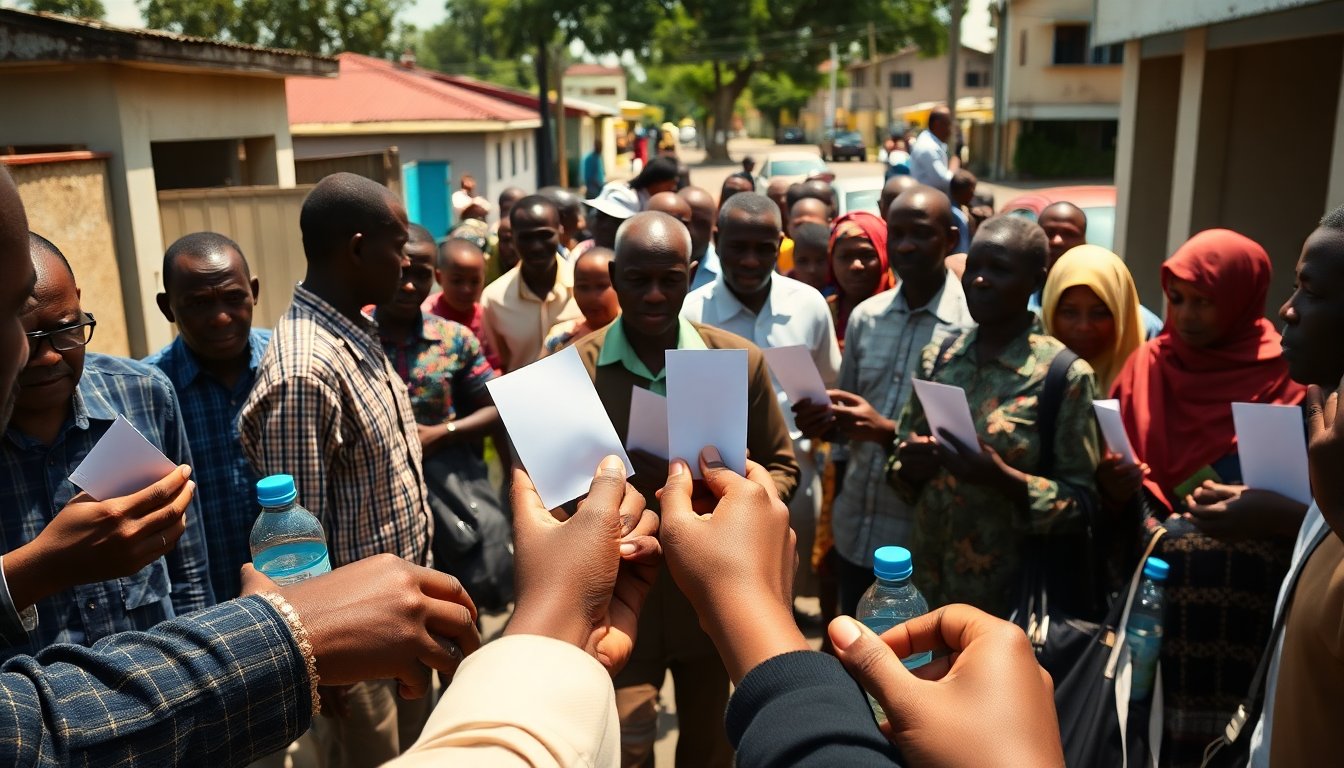Table of Contents
Malawi’s Crucial Election: A Crossroads for Leadership
Polling stations opened in Malawi as the nation faced a critical juncture, with incumbent President Lazarus Chakwera and former President Peter Mutharika competing for leadership amid significant economic turmoil. This election is particularly notable, given the soaring inflation and fuel shortages impacting daily life. Analysts indicate that the contest primarily revolves around these two candidates, each embodying distinct visions for Malawi’s future.
The Context of the Elections
Today’s elections mark the first national ballot since the annulment of the 2019 presidential vote due to irregularities. This context raises the stakes, as both Chakwera and Mutharika aim to restore public confidence in a scrutinized political system. Voters approach the polls with the backdrop of rising living costs and a fuel crisis, leading to widespread disillusionment with the political establishment.
Chakwera, 70, representing the Malawi Congress Party, campaigns on the theme of continuity, stressing the importance of completing infrastructure projects to aid economic recovery. His administration has faced allegations of cronyism and mismanagement, prompting voters to reassess their choices.
Conversely, Mutharika, 85, draws on the experience from his previous term, which elicits mixed feelings among voters. He presents himself as a candidate of change, appealing to those dissatisfied with the current administration. However, both candidates face scrutiny regarding their past records and the economic decline experienced during their tenures.
Voter Demographics and Sentiment
With approximately 60 percent of Malawi’s 7.2 million registered voters under the age of 35, the youth demographic plays a significant role in this election. Activists have mobilized to encourage young voter participation, addressing widespread apathy and frustration with the current political landscape. This demographic is particularly focused on economic reform and the need for a leader who can address their concerns authentically.
As youth activist Charles Chisambo noted, young voters seek not only a change in leadership but a transformative economic strategy. The dramatic rise in living costs—estimated at 75 percent over the past year—combined with climate-related challenges, has created dire circumstances for many citizens.
Despite these challenges, some voters remain optimistic. Lydia Sibale, a hospital administrator, expressed her confidence in Chakwera’s leadership, attributing the crisis to global economic factors. This sentiment reflects a broader perspective—while many are dissatisfied, there are still pockets of support for the incumbent president.
The Road Ahead: What to Expect
The requirement for a candidate to secure over 50 percent of the votes for an outright win suggests a strong likelihood of a run-off election within the next 60 days. This possibility highlights the divided sentiments among voters and the uncertain future that lies ahead for Malawi.
Political analysts suggest that Chakwera’s incumbency advantage may be overshadowed by ongoing economic challenges, potentially paving the way for Mutharika’s return. As Mutharika rallies supporters with promises of proven leadership and economic reform, voters must carefully consider their past experiences against current realities to determine who can effectively guide the nation out of its current difficulties.
The outcome of this election will be crucial, not only for the candidates involved but also for the future direction of Malawi as a nation. As the votes are cast and counted, the hopes and aspirations of millions will hang in the balance, awaiting the leader who will navigate them through the turbulent waters ahead.


